Western philosophy until today, in order to answer various questions, mainly the three basic ones – ‘Who am I’, ‘Where do I come from’, ‘Where am I going’ –
– uses the concept of the existence of God, as a transcendental power that a priori dominates in the Creation and he is outside (of) from it. The same concept is used to interpret some natural phenomena of living beings, such as that of “movement”, “thought” and “life”.

The Friedman – Lemaitre Cosmological Model
IMAGE LINKED: wikimedia Attribution 4.0 International (CC BY 4.0)
During the 20th century and especially after its second half, scientific progress is important. As a result, it can provide answers, among others, to the aforementioned questions.
Its answers are based on a large number of new proven theories which they are now scientific “truths” and they are accepted, consciously or not, by all of Humanity.
On the question of the origin of Human and Creation in general, it proposes the “Cosmological Model” in which the theory of the Big Bang dominates.
Close to this, a series of other theories, such as that of parallel universes, give convincing and largely experimentally proven answers.
As a result, Human falls from his position at the centre of the Creation, as religious views want him to be, and he is transferred to a small and insignificant planet on the periphery of a galaxy in one of the many Universes that maybe exist in Creation.
On the question where Creation will be led in the future, based on the same model and its theories as well as the 2nd Law of Thermodynamics, it answers that the Universe, which includes human life, will be led to destruction due to the increase in Entropy in a closed system.
The term was coined by Rudolf Clausius (1822 – 1888) who, observing the exchange of temperature of a system with its environment, called it “change of entropy”.

Antonio Damasio
IMAGE LINKED: wikimedia Attribution 4.0 International (CC BY 4.0)
On the existential question of Humans: “Who am I?” it is answered by a new science, Biology. Biology uses the theory of “Evolution of Species” and “Natural Selection” of Charles Robert Darwin (1809 – 1882) to answer the question of the origin of Human.
At the same time, in order to interpret aspects of his existence and their effect on the course of human life, he refers to Gregor Mendel’s Laws of Heredity (1822 – 1884) and to the recent interpretation of the genetic material of living organisms, which is known to all of us as DNA, and the information which this contains.
But it also gives answers to the individual questions we have mentioned. Thus, for the phenomenon of movement is no longer based on its Aristotelian interpretation , which considers its explanation as a prerequisite for the knowledge of the entire natural world .
Aristotelian theory of motion, which until the 17th century was the dominant scientific point of view, was replaced by Newtonian mechanics. Since then with Newton’s Law of Gravitation , the General Theory of Relativity which describes the force of gravity through the curvature of space-time in the presence of mass, the Quantum Theory of gravity, or by the theories of unified fields, or of many dimensions, interprets to a very large extent the phenomena of Motion.

DNA Cloning of Dolly the sheep
IMAGE LINKED: wikimedia Attribution 4.0 International (CC BY 4.0)
To explain the phenomena of Thinking, he uses the modern theories of Neuroscience and Psychology and the knowledge which we have so far about the functioning of the Brain.
As an example, we can mention the theories of the Portuguese neurophysiologist and Director of the University of Iowa College of Medicine Antonio Damasio (1944 – ) or Gary Finnegan’s articles , the theories of psychiatrists Gabor Maté (1944 – ) and Bessel van der Kolk (1943 – ) on the treatment of Trauma or the Representational theory of Mind or Consciousness.
Finally, for the creation of living organisms itself, the application of the laws of the functioning of DNA makes it possible to create living beings in the laboratory, for example the sheep named Dolly or the construction of human tissues for medical reasons.
It is certain that Knowledge in the reproduction of living organisms would have made great strides if Bioethics had not intervened by establishing Principles and limitations in its development.
After these new scientific answers to the critical philosophical questions, the position of God in Creation is seriously questioned to be replaced by the Laws of Nature in its operation.
Modern philosophy now turns its interest, in addition to fuller answers to the previous questions, to new ones that until now were mainly the concern of Metaphysics and Religions.
The first of these refers to the mortality of creations, living and non-living. The second one to the limitations in the production of Work set by the limited abilities of the human body regarding time and space and the duration of his action. To approach these questions and give convincing answers, Man uses a new tool. Artificial Intelligence.

Theofanis Tassis
IMAGE LINKED: wikimedia Attribution 4.0 International (CC BY 4.0)
Using it, he creates three new theories that he tries to confirm. These theories are strongly anthropocentric and consider Man as the dominant entity in Creation. These are:
- Digital Humanism.
The proponent of this theory is Theofanis Tassis (1976 – ). According to this theory, the supposedly redemptive character of Artificial Intelligence as an ideology is revealed, highlighting the ambiguity of digital evolution.
It demonstrates the dangers of unexamined technical progress by emphasizing the uniqueness of humanity which is intertwined with mortality. Without AI he would not be free, because he is free, because he is mortal, he possesses, in addition to Right Reason, imagination, desires, passions and emotions with which he gives meaning to life by affecting the natural world.
Digital humanism defends intellectual civilization against the dominance of algorithms, while contributing to the broadening and deepening of democracy because it recognizes the importance of meaning for humanity.
He does not wish to suppress technical development, but to enrich human experience by criticizing utopian expectations of deification, optimistic about the prospects .

John Desmond Bernal
IMAGE LINKED: wikimedia Attribution 4.0 International (CC BY 4.0)
- Meta-Humanism
The term was coined by Julian Huxley (+1975) the first president of UNESCO where he wrote: “The human species can, if it wants to, overcome itself as human nature.” He believes that Human beings can transcend human physical limits and go so far as to abolish old age and death.
According to Auguste Comte (1798 – 1857), Meta-humanism aims at the continuous improvement of human abilities and by extending Darwinian thought believes that Human can hope for a future life free from the limitations of human nature.
Objections and reflections on this proposal have been formulated by John Desmond Bernal (1901 – 1971) and Olivier Re who states that Human from being a “political animal” according to Aristotle becomes a “supervised animal” through the applications of technology .
- Hyper-Humanism.
The term Hyper-humanism describes the idea of freeing Human from his biological limitations and guiding our biological destiny outside of the evolutionary process.
It refers to the transformation of the human essence into something higher. With the intervention of Science and Technology.
Man will become a “superior” being regardless of the characteristics that Nature gives to each human being. It is therefore a radical and final stage of Meta -humanism .

Goose and Gridiron Ale-House and the Four Original Lodges
IMAGE LINKED: wikimedia Attribution 4.0 International (CC BY 4.0)
Today there are strong objections to techno-humanism. Many philosophers such as Jürgen Habermas (1929 – ) reject them. Others such as Niklas Boström (1973 – ) support their dissemination.
In contrast to them appeared the theory of Eco-philosophy in which Human is part of Nature and not sovereign.
His existence is based on an environment suitable for his survival and consequently any of his actions must be compatible with the maintenance and development of conditions suitable for his life. The writer is one of the supporters of this philosophical proposition .
Grand Lodge Freemasonry was created about 300 years ago. It contributed to the development and dissemination of Principles that at that time created a society and a culture that promoted Humanity and created conditions for the development of Knowledge about the functioning of Nature. It relied on Principles which are:
- The Existence of God.
Human’s attempt to know Nature and the World that surrounds him through Science brings him face to face with the authority of the Church and at the same time with the need to establish himself at the top of Creation, in order to dominate it. This position could only be given to him by an external factor, and this is a God who, with his ‘Ex Apocalypse’ Truth, placed him in this position.
- The organization and development of the Nation-State.
The American and French Revolutions created the conditions for the development of a new political structure based on the dominance of a new social class, the Bourgeois, and a new ideology, Nationalism.
The Nation-State. Its aim is to build and maintain a single national identity, based on common national and social characteristics. By promoting national unity and solidarity, it seeks to preserve and highlight the dominant traditional culture of the nation.
- Emphasis on the value of Labour.
Influenced by the Protestant Ethic, he promotes Labour as the highest Value of Life, characterizing it as the main point of recognition of the “chosen” person by Divine Grace. Labour and its value dominate the masonic rituals of the period and still occupies a special place in their newer editions.
- In the consolidation of the bourgeois family and its culture.
References to the Value of the family and its protection from all external danger are evident in all symbolic degrees Rituals. Even social solidarity is proposed to be performed without harming one’s own interests or the family.
At the same time, elements of urban culture, such as the dress code and participation in “closed” clubs with special behaviour and rules are elements of urban culture that have passed into Freemasonry.
But conditions have changed. Modern thought does not need God to interpret and provide answers to the philosophical questions of the previous time but also to those formulated later.
The power of the Nation-State is weakened by transferring decisions about its operation to other supra-national institutions, such as the European Union, the World Trade Organization, the International Bank, the new monetary unions or the military coalitions such as NATO.
All these limits the possibility of exercising an independent national policy in an increasingly globalized world.
Labour is no longer a source of happiness and creation for Humans. Capitalism, which has dominated the planet as an economic system, often creates crises both in the economy and in society, while new forms of labour replace traditional ones, abolishing old habits and limiting personal time considerably.
The effort to acquire wealth does not bring the desired results, while the constant consumption of products and lifestyle have replaced the need for education, culture and spiritual development.
Finally, the form of the bourgeois family as the nucleus of society is largely disputed in modern societies. The appearance of new forms of families, such as single-parent families or those of same-sex couples, combined with the appearance of multicultural groups and families whose members belong to different cultures, create new data.
If all that concerns the forms of the modern family are combined with the labour activities of its members, who may be in different cities or countries, then the picture of the family of the 21st century is fully completed.
Grand Lodge Freemasonry upholds and promotes its own ancient values. Masonic rituals abound with references to them. This is natural for the time when Grand Lodge Freemasonry was created. At that time, it was the leading force for the transformation of society into a modern, for that time, form. But today?
After all that is mentioned, is understood that the values and principles of Grand Lodge Masonry cannot be applied in modern societies.
Masonry needs to take all this into account and propose a new Masonic philosophical approach based on the new theories as briefly presented above and to use modern tools and organizational structures, among which is Artificial Intelligence, in a more decentralized modern administrative structure.
If it does not do so immediately, it will be marginalized, like God in modern thought and the philosophy which is based on ancient Greek thought, or the thought of the first years of the Enlightenment. The theories of these periods now concern the History of Philosophy and are of interest in examining the evolution of human thought but do not contribute to its current evolution.
The operation of research lodges and Masonic groups that aim to develop new concepts and the use of new tools from Masonry and publications, such as this electronic magazine, contribute the most in such a direction.
For any elaboration of new concepts as well as the way of using new technologies, collective thinking and action are necessary.
The age of the “enlightened” has irretrievably passed, not least because of the amount of information that is now available, which is impossible for a single person to have access and control to all of the knowledge available, no matter who he is and how much he knows.
Footnotes
Bibliography
• Aristotle, “On physical hearing”, in Physical, C.1, introduction – translation – comments V. Kalfas, Nisos, 2015.
• Bousoutas – Thanasoulas G. (2024), “Freemansonry Ecology” in The Square magazine in https://www.thesquaremagazine.com/mag/article/2024q2freemasonry-and-ecology/
• Bousoutas – Thanasoulas G. (2011), “A new proposal” in The Naked Woman – Metaphysics without the mantle of Theocracy and anthropocentrism, Ideotopos.
• Daglis D. (2023), “Techno-Anthropism”, in Journal of the Editors, at https://www.efsyn.gr/stiles/apopseis/383967_tehno-anthropismos
• Damasio A. “How thought is created”, mag. Scientific American, Greek Edition, vol. 4, 12.
• Finnegan G. “How neuroscience is helping us understand attention and memory” at https://www.scienceinschool.org/el/article/2017/how-neuroscience-helping-us-understand-attention-and– memory-el/
• Grand Lodge of Greece, (2021). Emulation Rituals.
• Olivier Res. (2018), Interview with Christophe Zefrois in La Nef newspaper. at https://lanef.net/2018/09/28/lhomme-laisse-sans-defense/
• Tassis Th. (2020), “Digital Humanism”, interview with Maria Sfyroera, Hellenic Radio Television, at https://www.ertnews.gr/eidiseis/politismos/psifiakos-anthropismos-grafei-o-theofanis-tasis/
Article by: George Boussoutas Thanasoulas
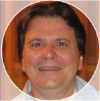
George Boussoutas Thanasoulas holds a Master's Degree in Public History, and Modern Greek History.
He has written five books and four monographs. His texts have been included in collective volumes and articles published in various journals.
George is a Past W. Master of Attikos Astir Lodge Nr. 139 of the Grand Lodge of Greece, Past President of the Council of General Affairs of the National Grand Lodge of Greece and Past W. Master of the Research Lodge of Isis Nr. 9 of the National Grand Lodge of Greece.
Website: www.bousoutas.gr
Recent Articles: of current interest
 Keeping Passions and Prejudices within Due Bounds Master your emotions and find balance in a chaotic world with Darren Allatt's "Keeping Passions and Prejudices within Due Bounds." Discover practical strategies for self-awareness, emotional intelligence, and building meaningful relationships. Transform your life with calmness, clarity, and purpose. Start your journey towards emotional mastery today. |
 Masonry in the Age of Leisure - P2 Explore the optimistic future of Masonry in "Masonry in the Age of Leisure" by VVenBro Scott Wisdahl. Delve into the possibilities of a leisure-driven society where technology enhances social bonds, decentralizes the Craft, and reshapes Masonic traditions. Discover how Masonry can thrive in an interconnected, tech-savvy world. |
 Masonry in the Age of Leisure - P1 Embrace the future of Masonry in the Age of Leisure! Imagine an era where technology empowers deeper connections, offering a tapestry of diverse groups united by Freemasonry’s timeless values. Envision hybrid meetings transcending borders, fostering brotherhood across continents. This optimistic future cultivates intellectual growth and social interaction, heralding a Masonic renaissance for all. |
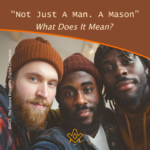 “Not Just A Man. A Mason”: What Does It Mean? Embrace the profound essence of Freemasonry, not merely a group but a journey of integrity, shaping men of dignity. By adopting virtues such as honesty, justice, and brotherly love, Freemasonry transcends time, urging us towards a dignified life. It’s more than being a man; it’s about living with unyielding dignity. |
 Multiculturism and the Culture of Freemasonry Freemasonry, with its deep roots in universal principles such as individual freedoms, education, and the pursuit of science, stands as a beacon of unity in a world divided by conflicting ideologies. By embracing the tenets of Freemasonry, including respect, peace, and mutual understanding, we can navigate societal challenges and foster a more harmonious world. |
 Embrace the new paradigm of eco-conscious living in the 21st century. Freemasonry, a cornerstone of society, must evolve, placing Nature at its heart. Reject anthropocentrism, embrace deep ecology, and champion sustainable living and global cooperation. Let Freemasonry lead by example, advocating for a world where humans and nature coexist harmoniously. |
 How Freemasonry Has Woven Itself into the Fabric of Society Like the weathered stones of an ancient temple, Freemasonry's origins are shrouded in mystery. This fraternal order has woven invisible threads throughout society's fabric since emerging in the 1600s. Despite declining membership, Freemasonry's influential legacy endures, seen in philanthropy, architecture, and the ideals of legendary members. Though facing challenges, revival remains possible if it adapts traditions to the modern era. |
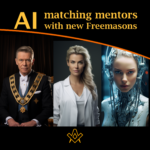 AI help in matching mentors with new Freemasons Harnessing AI for Freemasonry Mentorship: A Comparative Analysis. Freemasonry, an age-old fraternity, seeks to enhance its mentorship program by leveraging AI. While the Grand Master suggests detailed member profiles for matching, a Professional Coach emphasizes personality compatibility. Meanwhile, an AI Bot proposes machine learning for pattern recognition. Dive in to explore the potential and pitfalls of each approach. |
 Masonic Charities P.2 – The Shriners Discover the Shriners' legacy within Freemasonry; delve into their profound commitment to philanthropy and see how Masonic Charities demonstrate brotherly love, relief, and truth. Become inspired by the bonds that unite Shriners around the globe and their impactful work in local communities. |
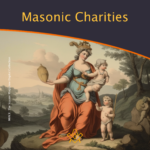 Freemasonry's commitment to charity has always been a priority and remains a core principle, reflecting its mission to promote brotherly love, relief, and truth in the world. Part 1 of the series gives an introduction to the establishment of the main Masonic Charitable endeavours in the 18th and 19th centuries and several key influencers. |
 Solomon Learning and Development Platform The Intersection of Freemasonry and Technology: Embracing the Digital Age with the New |
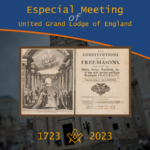 Especial Meeting of United Grand Lodge of England The year 2023 marks the tercentenary of the publication in London of the Constitutions of the Freemasons, based on Enlightenment principles that provide the philosophical foundations of modern Freemasonry. Why are the 1723 Constitutions important? Many Masonic histories have been concerned with ‘when’ and ‘what’. We also explore ‘why?’ |
 Like every other incident of initiation it is in the light of the larger meanings of Freemasonry that we must interpret the Rite of Destitution. But what does it mean? |
 Society of Grand Lodges in Alliance (SOGLIA) is a confederation of Grand Freemason Obediences in which all members obey the principles of Regularity. Assembled annually, in different places of the world, in order to share fellowship and to promote Masonic tradition, SOGLIA members are respecting the autonomy of each Grand Lodge. |
 Confederation of the Grand Lodges of Europe and the Mediterranean - Universal Freemasonry and its intellectual property are less and less taken into account in the current times of constant movement and unclear future prospects. |
 The Book of Law in Brazilian Freemasonry We are informed that, Freemasonry it is not a religion, but the candidate has a belief in a creative principle, which later, we call the Great Architect of the Universe. - by Fernando Rodrigues de Souza |
 Mike's Masonic Walks And Talks WBro. Mike Neville is a Masonic author and lecturer. He offers walks and talks primarily around London, based on his vast knowledge of the area and his specialist subjects, which cover all aspects of Masonic history. |
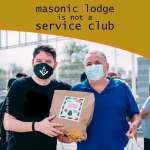 A Masonic lodge is not a service club An address delivered to the 10th Annual Conference of Western Canadian Grand Lodges (1950) in response to the question, "Should Our Western Grand Lodges Sponsor a Specific Program?" By |
 The Order of Bees was established as a youth initiative for the boys and girls of Prince Hall Freemasons, and symbolises the relationship existing between the activities of the youth and the family of bees. |
 The Confederación Masónica Interamericana (CMI) was founded in 1947, is a non-profit organization that groups together 92 Great Masonic Powers, admitted as members and distributed in 26 countries in South, Central, North, Caribbean and Europe. |
 This smartphone app is designed to work with all Freemasons from both Regular and Independent Grand Lodges around the world. |
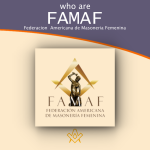 The American Federation of Feminine Freemasonry (FAMAF) is an organization that brings together Grand Lodges, Grand Orients and Confederations of Feminine Masonic Grand Lodges from the American continent. |
 The third largest Masonic Alliance of independent grand lodges, which currently has over 500,000 members in the world and an incredible resource of "good people with a good reputation" from around the world. |
 A Guiding Paw - my faithful 'brethren' A heart-warming story of one Mason's best friends – and how Gary's faithful guide dogs have helped fulfil both his Masonic life but also his valuable work in public service. |
 A visit to the Mother Lodge of Scotland Let me take you to the heart of Scotland to meet our Brethren of the Mother Lodge of Scotland, a journey into one of Freemasonry's deepest roots. Our guide Carlos Oliveira Santos who is from |
 An introduction to VEREINIGTE GROSSLOGEN von Deutschland / UNITED GRAND LODGES of Germany |
 International Masonic Union CATENA An international association of Grand Lodges and independent Lodges, with all true Masonic traditions, which adhere to the basic principles of the equal standing of men and women in Freemasonry |
 Social Impact of Prince Hall Freemasonry in D.C., 1825-1900. Alonza Tehuti Evans discusses Prince Hall Freemasonry, founded by African Americans. |
 Who are the Widows Sons, and what do they do, and how can you join ? |
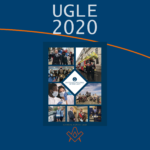 For the first time in its 300 year history UGLE has published an Annual Review |
 Founded in 1919 and named after the Grand Master of the Knights Templar, this International Order has helped young boys become great men. |
 9th International Conference of Freemasonry Hidden Meanings: Esotericism and Masonic Connections |
 An introduction to CLIPSAS and we look at who are they and what do they do |
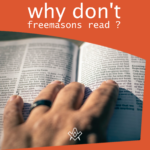 The title of this article will seem somewhat of an oxymoron, because at this precise moment you, most likely a Freemason, is reading this |
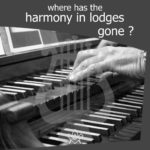 Music can make you either remember everything or forget everything! They even call it the 'rhythm' of life because life does have a beat, a rhythm, a song! Music is equally important for Freemasons. |
 Young Masons' Inter-Club Virtual Social An initiative was created to initially keep Brethren engaged in their Masonry whilst the restrictions of the COVID-19 pandemic are in place. |
 I've heard people say that we don't have heroes |
 What can we learn from Steve Jobs' address given at Stanford in 2005 |
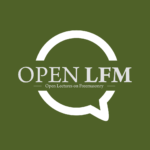 Open Lectures on Freemasonry as a series of monthly online lectures that aims to increase the visibility and accessibility of research into Freemasonry. The lectures are open to anyone who is interested. |
 What Kind of Library Do You Have? Many Brothers have no clue as to what kind of "Craft" library they actually have in their home or office. Most of these Brothers don’t care that they don't know – so, what kind of library do you have? |
 Russian Freemasonry a combination of a short sketch of its history and a review of the present-day Masonic landscape in this country |
 A brief outline showing the differences and similarities within Freemasonry |
masonic knowledge
to be a better citizen of the world
share the square with two brothers

click image to open email app on mobile device






